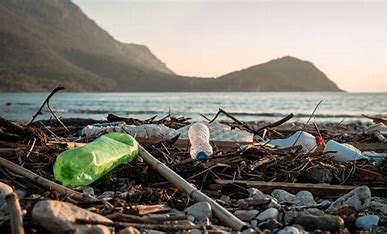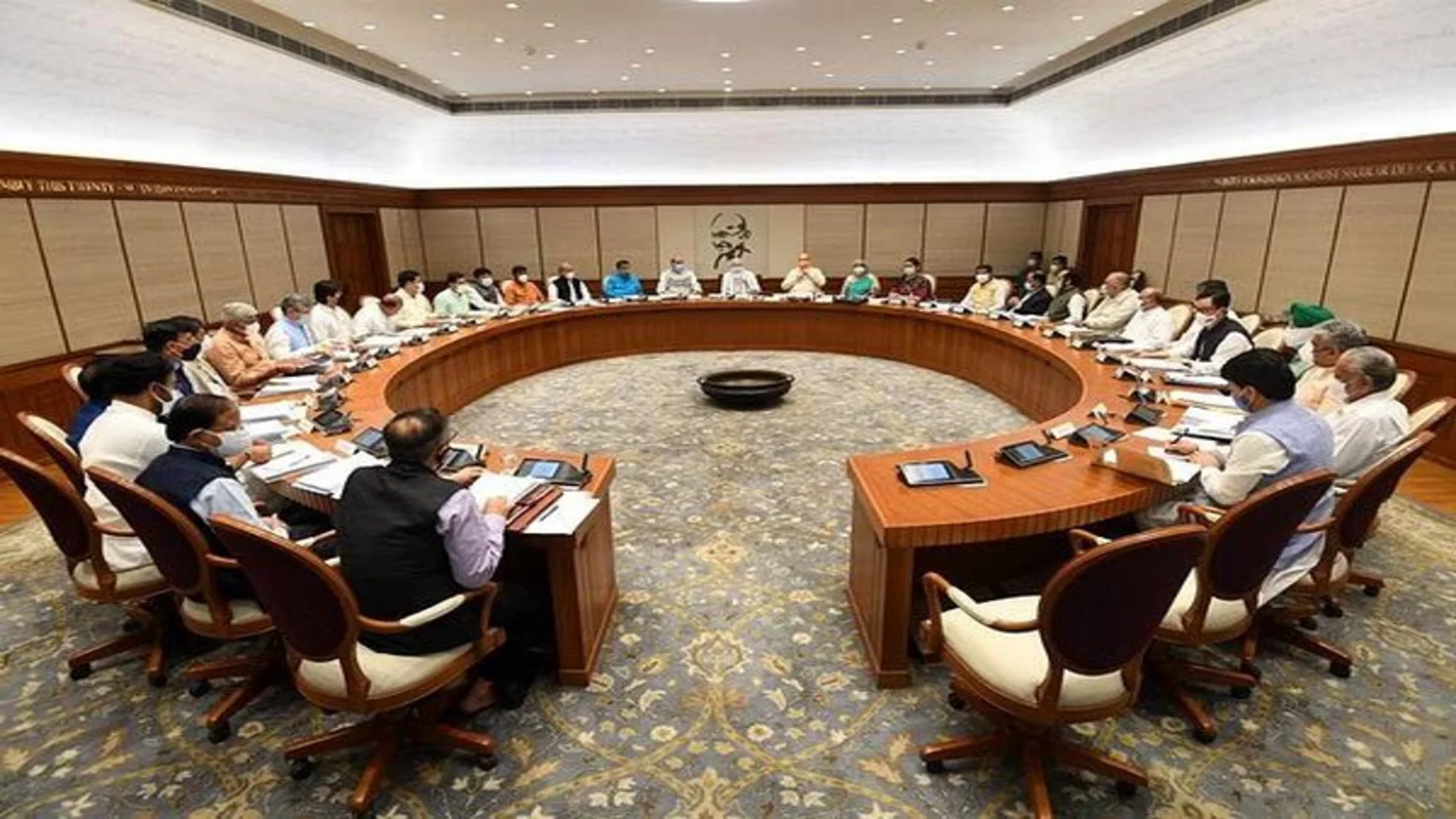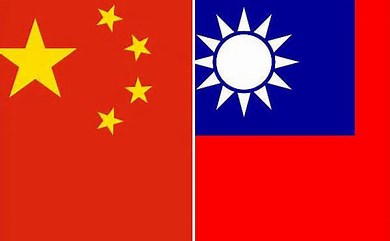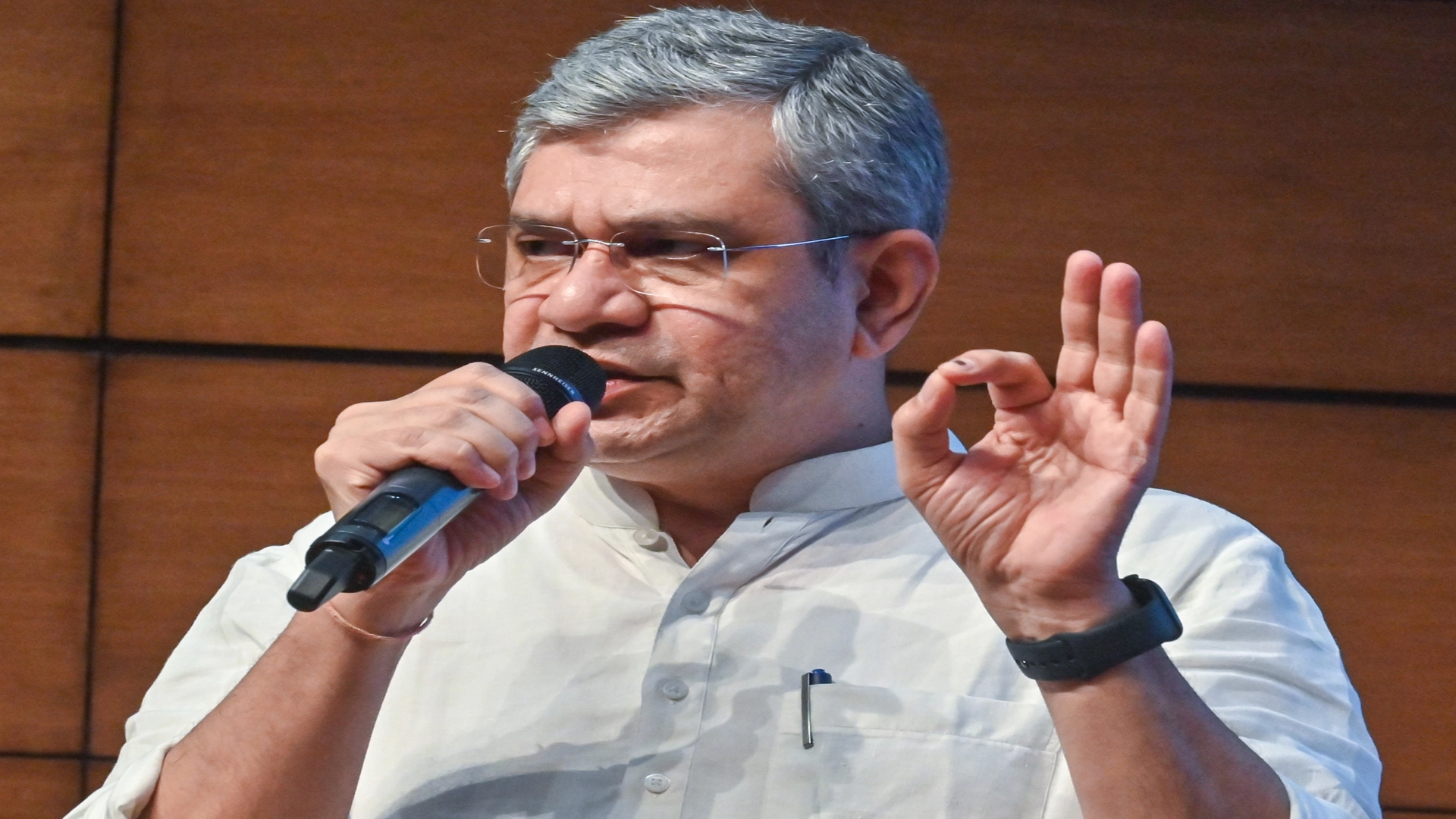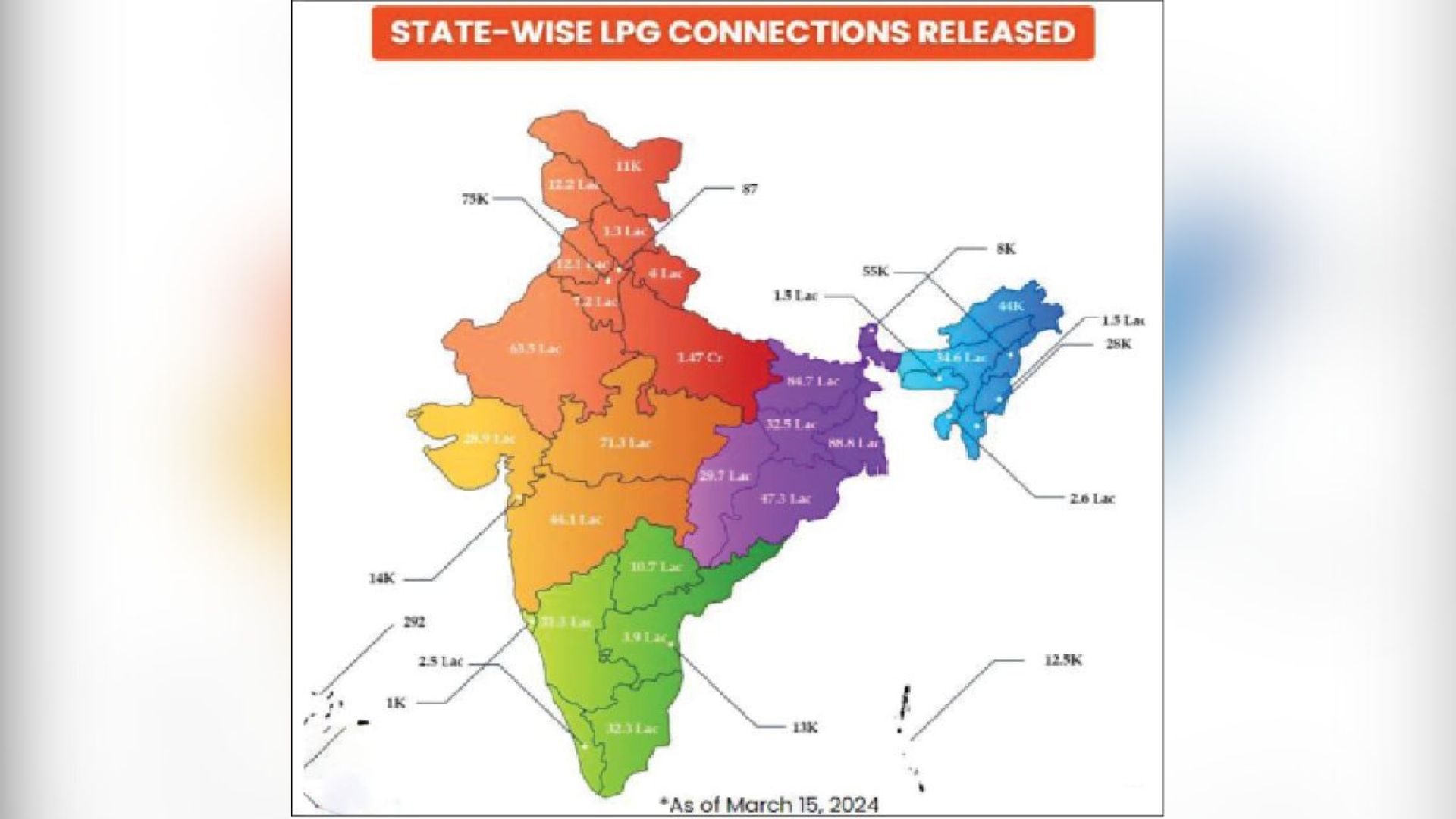
In May 2016, Government ofV India launched Pradhan Mantri Ujjwala Yojana (PMUY), a social welfare scheme supporting Prime Minister Narendra Modi’s vision of a smoke-free rural India. The key objective of the scheme is to replace harmful cooking fuels such as coal and firewood with clean LPG to protect women & children’s health by reducing indoor smoke pollution.
The scheme provides a completely free LPG connection, including the first refill and a stove. The scheme also offers a targeted subsidy of ₹300 per 14.2 kg cylinder for up to 12 refills per year (pro-rated for 5 kg connections) to all PMUY consumers, further easing the financial burden and promoting clean cooking fuel adoption.
PMUY initially aimed to provide 8 crore free LPG connections to poor households, achieving this target in September 2019. To reach more families, PMUY 2.0 was launched in August 2021, distributing an additional 1.6 crore connections by January 2022. With the government approving another 75 lakh connections, the scheme’s current target is 10.35 crore.
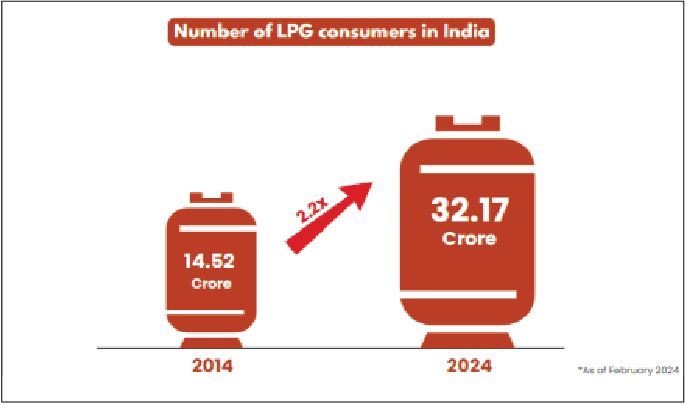
ACHIEVEMENTS (As of March 14, 2024)
• A total of 10.31 Crore LPG connections have been released under the scheme so far.
• Per capita consumption of PMUY Beneficiaries has increased from 3.01 Refills per annum (in terms of 14.2 Kg refill) during FY 2019-20, to 3.71 refills during FY 2022-23 and further to 3.8 refills in 2023-24 (till October 2023).
• Active LPG consumers doubled from 14.52 crore in 2014 to 32.17 crore in February 2024.
TOP STATES IN PMUY IMPLEMENTATION
Leading the charge in PMUY implementation are, in descending order, Uttar Pradesh, West Bengal, Bihar, Madhya Pradesh and Rajasthan. These states have made significant progress in providing clean and affordable LPG connections to their citizens, contributing significantly to the overall success of the scheme.
The PM Ujjwala Yojana has made a big difference in the lives of people in India, especially for women in rural areas. Switching to cleaner cooking gas (LPG) has helped cut down indoor air pollution, making people healthier, especially kids and women who spend a lot of time around kitchen smoke. This switch means less time and effort is spent on collecting firewood and more on things that enable women to allocate time to economically productive activities. It also helps our forests by reducing the need to cut down trees for fuel, making our environment healthier. Cooking is safer too, with fewer accidents like burns from open fires. Plus, with better cooking options, families can make nutritious meals, thereby contributing to better health outcomes for families.
Source: Press Information Bureau, Government of India
